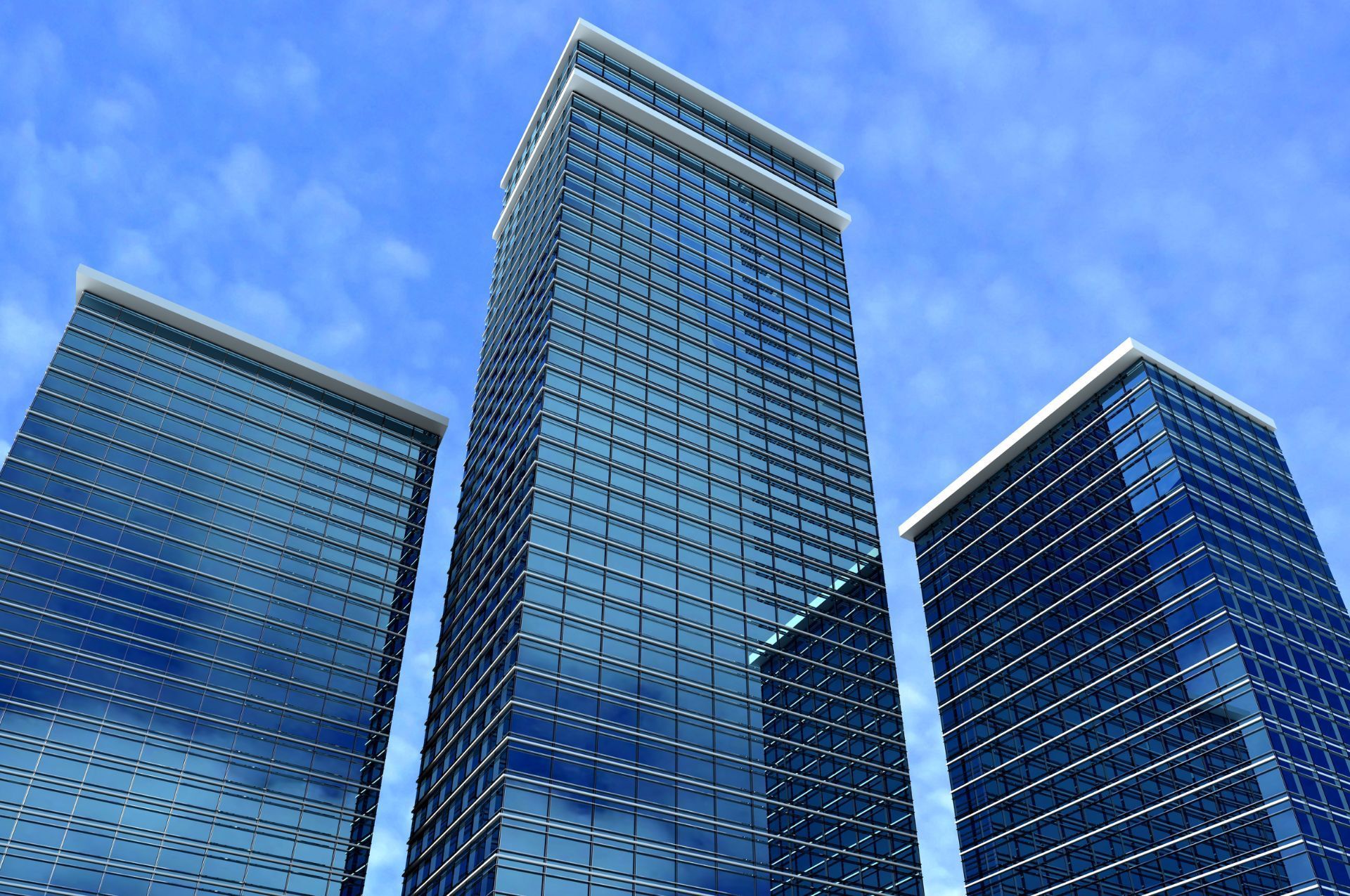
Top 3 Recommended Policies
When it comes to protecting your investment in an office building in Connecticut, understanding the ins and outs of office building insurance is crucial. This type of insurance not only safeguards your property but also protects your business from unforeseen events. In this guide, we will explore the essential aspects of office building insurance, including coverage options, factors influencing premiums, and tips for choosing the right policy.
Understanding Office Building Insurance
Office building insurance is a specialized form of property insurance designed to cover commercial properties used for office purposes. This insurance protects against various risks, including fire, theft, vandalism, and natural disasters. Understanding the nuances of this insurance can help property owners make informed decisions, ensuring that their investment is well-protected against unforeseen events that could lead to significant financial losses.
In addition to protecting the physical structure, office building insurance also plays a crucial role in safeguarding the livelihoods of employees and the overall operational continuity of a business. For instance, if a natural disaster were to strike, not only would the building itself be at risk, but the interruption to normal business operations could lead to a loss of revenue and client trust. By securing comprehensive coverage, business owners can mitigate these risks and focus on their core activities without the constant worry of potential financial fallout from unexpected incidents.
What Does Office Building Insurance Cover?
The coverage provided by office building insurance can vary significantly based on the policy and the insurer. Generally, it includes:
- Property Damage: This covers the physical structure of the building, including walls, roofs, and floors, against damage from covered perils.
- Liability Protection: If someone is injured on your property, liability protection helps cover legal fees and medical expenses.
- Business Interruption: This coverage compensates for lost income if the business must temporarily close due to a covered loss.
Additionally, some policies may offer coverage for equipment, furniture, and other contents within the office building. It is essential to review the specifics of each policy to ensure adequate protection. Many insurers also provide options for additional endorsements, which can expand coverage to include cyber liability, equipment breakdown, and even employee dishonesty, reflecting the evolving nature of risks in today’s digital and interconnected world.
Types of Office Building Insurance Policies
There are several types of policies available for office buildings, each tailored to different needs:
- Commercial Property Insurance: This is the most common type of insurance for office buildings, covering the physical structure and its contents.
- General Liability Insurance: This protects against claims of bodily injury or property damage that occur on the premises.
- Business Owner's Policy (BOP): A BOP combines property and liability insurance into one package, often at a lower rate than purchasing them separately.
Choosing the right type of policy depends on the specific needs of the business and the level of risk associated with the property. For instance, a high-rise office building in a bustling urban area may face different risks compared to a small office in a suburban setting. Factors such as location, the nature of the business, and the building's age and condition can all influence the type of coverage needed. Moreover, consulting with an insurance professional can provide valuable insights into customizing a policy that aligns with the unique circumstances of the office space, ensuring comprehensive protection tailored to the specific operational needs of the business.

Factors Influencing Insurance Premiums
Understanding what influences insurance premiums can help property owners manage costs effectively. Several factors can affect the price of office building insurance in Connecticut.
Location of the Building
The geographical location of the office building plays a significant role in determining insurance premiums. Areas prone to natural disasters, such as floods or hurricanes, may incur higher rates. Additionally, the local crime rate can also impact premiums; properties in high-crime areas may face increased costs due to the higher risk of theft and vandalism. Moreover, proximity to emergency services, such as fire departments and police stations, can also influence premiums. Buildings located closer to these services may benefit from lower rates, as they are perceived to be at a reduced risk of loss or damage due to quicker response times in emergencies.
Building Characteristics
The age, construction type, and overall condition of the building are critical factors in determining insurance costs. Newer buildings constructed with modern materials may qualify for lower premiums, while older buildings may require additional coverage or higher rates due to potential maintenance issues. Furthermore, features such as fire alarms, sprinkler systems, and security measures can also influence the premium. Buildings equipped with advanced safety features, such as reinforced structures or energy-efficient systems, can not only enhance safety but may also lead to discounts on premiums. Insurers often appreciate properties that demonstrate a commitment to risk management through proactive maintenance and upgrades.
Business Operations
The nature of the business operating within the office building can affect insurance premiums as well. High-risk industries, such as those dealing with hazardous materials or heavy machinery, may face higher rates. Conversely, businesses with lower risk profiles, such as professional services, may benefit from lower premiums. Additionally, the size and scale of the business can also play a role; larger businesses may require more comprehensive coverage, which could lead to increased costs. Insurers will also consider the claims history of the business, as a record of frequent claims can signal higher risk, potentially resulting in elevated premiums for the office building insurance policy.
Choosing the Right Office Building Insurance Policy
Selecting the right insurance policy for an office building can be a daunting task, but taking a systematic approach can simplify the process. Here are some steps to consider when choosing a policy.
Assess Your Coverage Needs
Before shopping for insurance, it’s essential to assess the specific coverage needs of your office building. Consider factors such as the value of the property, the contents within, and the potential risks associated with the location and business operations. This assessment will help determine the type and amount of coverage required. Additionally, it is wise to evaluate the potential liabilities that could arise from tenant activities, employee injuries, or natural disasters. Understanding these risks can help tailor your policy to ensure comprehensive protection.
Compare Multiple Quotes
Obtaining quotes from multiple insurance providers is crucial for finding the best deal. Each insurer may offer different coverage options and premium rates. By comparing quotes, property owners can ensure they are getting the best value for their insurance needs. It’s also beneficial to look beyond just the price; consider the reputation of the insurer, their claims process, and customer service reviews. This broader perspective can help you choose a policy that not only fits your budget but also provides reliable support when you need it most.
Consult with an Insurance Agent
Working with an experienced insurance agent can provide valuable insights into the complexities of office building insurance. An agent can help navigate the various policy options, explain coverage details, and assist in finding a policy that aligns with the specific needs of the business. Furthermore, an agent can help identify any discounts or special programs that may be available, such as bundling policies or loyalty discounts for long-term clients. Their expertise can be particularly beneficial in understanding the nuances of local regulations and market trends, ensuring that your coverage remains compliant and relevant.
Moreover, an insurance agent can also assist in reviewing your policy periodically. As your business evolves, so do your insurance needs. Regular check-ins can help ensure that your coverage keeps pace with any changes, such as renovations to the building, changes in occupancy, or shifts in the market that may affect property values. This proactive approach not only enhances your protection but also provides peace of mind, knowing that you are adequately covered against unforeseen events.
Common Exclusions in Office Building Insurance
While office building insurance provides essential coverage, it is equally important to understand what is not covered. Common exclusions can lead to unexpected costs if not addressed beforehand.
Natural Disasters
Many standard office building insurance policies exclude coverage for certain natural disasters, such as floods and earthquakes. Property owners in Connecticut should consider purchasing additional coverage or separate policies for these risks, especially if their building is located in a flood-prone area. Moreover, it is advisable to assess the geographical risks associated with the location of the office building. For instance, areas prone to hurricanes may require windstorm coverage, while properties in seismic zones should look into earthquake insurance. Understanding the specific vulnerabilities of a location can help in making informed decisions about necessary additional protections.
Wear and Tear
Insurance policies typically do not cover damage resulting from normal wear and tear or maintenance issues. Property owners are responsible for maintaining their buildings and addressing any deteCommon Exclusions in Office Building Insurancerioration that occurs over time. This means that regular inspections and maintenance schedules should be a priority for property owners to mitigate the risk of costly repairs down the line. Additionally, keeping detailed records of maintenance activities can be beneficial not only for the upkeep of the property but also in demonstrating diligence in care should any disputes arise regarding claims.
Intentional Damage
Any damage caused intentionally by the property owner or their employees is not covered by office building insurance. It is crucial for businesses to foster a culture of care and responsibility to avoid potential claims being denied. This includes implementing training programs that emphasize the importance of property care and the financial implications of negligence. Furthermore, having clear policies and procedures in place for reporting and addressing issues can help prevent situations that might lead to intentional damage, whether through neglect or malicious intent. By promoting a responsible workplace environment, property owners can safeguard their investments and ensure that their insurance coverage remains intact.

The Claims Process: What to Expect
In the unfortunate event of a loss, understanding the claims process can help property owners navigate the situation more effectively. Here’s what to expect when filing a claim.
Reporting the Claim
The first step in the claims process is to report the incident to the insurance provider as soon as possible. Most insurers have a dedicated claims hotline or online portal for reporting claims. Providing detailed information about the incident, including photographs and documentation, can expedite the process. It’s also advisable to keep a record of all communications with the insurance company, including dates, times, and the names of representatives spoken to. This documentation can be invaluable if any disputes arise later in the process.
Investigation and Assessment
Once the claim is reported, the insurance company will assign a claims adjuster to investigate the situation. The adjuster will assess the damage, review the policy, and determine the amount of compensation owed. This process may involve interviews, site visits, and the review of relevant documentation. It’s important for property owners to be prepared for this visit by having all necessary paperwork organized, such as receipts for repairs, maintenance records, and any previous claims. The adjuster’s findings will play a crucial role in the outcome of the claim, so being cooperative and transparent can help facilitate a smoother assessment.
Receiving Compensation
After the investigation is complete, the insurer will provide a settlement offer based on the findings. Property owners can accept the offer or negotiate if they believe it does not adequately cover the damages. Once an agreement is reached, compensation will be issued, allowing the property owner to begin repairs or replacements. It’s important to understand the terms of the settlement, including any deductibles that may apply. Additionally, property owners should be aware of the timeline for receiving funds, as this can vary significantly between insurers. In some cases, the compensation may be issued in installments, particularly for extensive repairs, so planning accordingly is essential to avoid financial strain during the recovery process.
Tips for Reducing Office Building Insurance Costs
While office building insurance is a necessary expense, there are several strategies that property owners can employ to reduce costs without sacrificing coverage.
Increase Deductibles
One effective way to lower insurance premiums is by opting for a higher deductible. A deductible is the amount the policyholder must pay out-of-pocket before the insurance coverage kicks in. While this may increase upfront costs in the event of a claim, it often results in lower monthly premiums. It's important to carefully assess your financial situation and consider how much you can comfortably afford to pay in the event of a claim before deciding on a higher deductible. This strategy can be particularly beneficial for those who have a solid emergency fund or have not had many claims in the past.
Bundle Policies
Many insurance providers offer discounts for bundling multiple policies, such as property and liability insurance. By consolidating coverage with one insurer, property owners can often save money while simplifying their insurance management. Additionally, bundling can streamline communication with your insurance provider, making it easier to manage renewals and claims. It's wise to shop around and compare bundled options from different insurers, as the savings can vary significantly. Some companies even offer additional perks, like enhanced customer service or tailored coverage options, when you choose to bundle.
Implement Risk Management Practices
Taking proactive measures to reduce risks can lead to lower insurance premiums. This may include installing security systems, conducting regular maintenance, and implementing safety protocols. Insurers often reward businesses that demonstrate a commitment to risk management with reduced rates. For example, investing in a state-of-the-art fire alarm system or surveillance cameras can not only deter potential theft or damage but also provide evidence of your commitment to safeguarding the property. Furthermore, regular training sessions for employees on safety procedures can minimize workplace accidents, which insurers consider when determining premium rates. Engaging with an insurance advisor to identify specific risk management strategies tailored to your building can further enhance your savings potential.
Conclusion
Connecticut office building insurance is a vital component of protecting commercial real estate investments. By understanding the coverage options, factors influencing premiums, and the claims process, property owners can make informed decisions that safeguard their assets. Taking the time to assess coverage needs, compare quotes, and implement risk management strategies can lead to significant savings and peace of mind.
Investing in the right insurance policy not only protects the physical building but also ensures the continuity of business operations in the face of unforeseen events. With the right knowledge and resources, property owners can navigate the complexities of office building insurance with confidence.
Contact Us
Phone
Locations
Connecticut Location
703 Hebron Ave., 3rd Floor, Glastonbury, CT 06033
North Carolina Location
436 East 36th St., Charlotte, NC 28205


